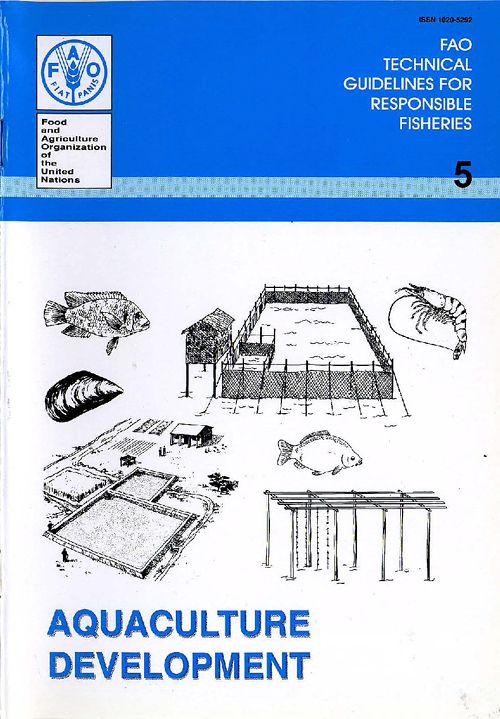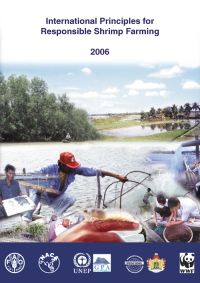FAO Technical Guidelines for Responsible Fisheries No. 5: Aquaculture Development
1 January 1997 | 3539 Downloads | .pdf | 650.88 KB | Governance and Policy
Aquaculture is one of the fastest growing food production systems in the world, with the bulk of its output currently being produced within developing countries, and with expectations for aquaculture to continue its contributions to food security and poverty alleviation. The vast majority of aquaculture practices around the world have been pursued with significant nutritional and social benefits, and generally with little or no environmental costs. However, it is essential for current efforts aiming at the future success of aquaculture in both developing and developed countries, that potential social and environmental problems are duly addressed in order to ensure that aquaculture develops sustainably.
This document provides annotations to the Principles of Article 9 of the Code of Conduct for Responsible Fisheries. These annotations are meant to serve as general guidance, and should be taken as suggestions or observations intended to assist those interested in identifying their own criteria and options for actions, as well as partners for collaboration, in support of sustainable aquaculture development. Given the diversity in aquaculture and the sometimes different perceptions of “sustainability”, more balanced and informed approaches are required to address developmental and environmental issues at any given location. Commitment for collaboration, constructive dialogues among responsible partners, and participation of aquafarmers and their communities are important when assigning responsibilities for sustainable development of aquaculture.
Providing an enabling environment for sustainable development in aquaculture is the responsibility of people in governments and their institutions, social and natural scientists, media, financial institutions, special interest groups, including social and private sector associations, as well as of aquaculture producers, manufacturers and suppliers of inputs, processors and traders of aquaculture products. Commitment to understanding, fairness and responsible attitudes in consultations and negotiations between countries or regions will also help sustainable aquaculture development.
Copyright, all rights reserved.

